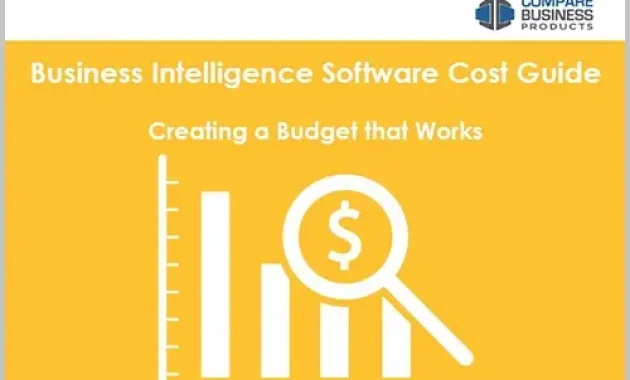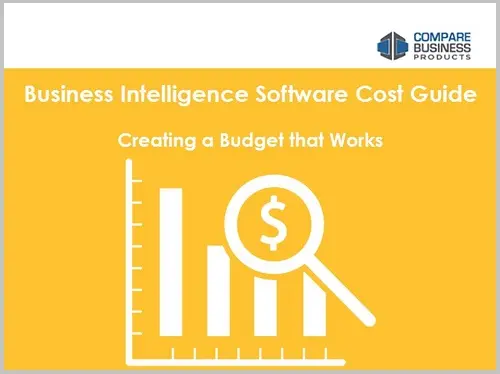
Insider Guide to Business Intelligence Software That Delivers
In today’s data-driven world, businesses are drowning in information. But data alone isn’t enough. To thrive, organizations need the ability to transform raw data into actionable insights. This is where Business Intelligence (BI) software comes in. This insider guide will explore the landscape of BI software, providing a comprehensive overview of the tools, features, and considerations necessary to choose the right solution for your needs. We’ll delve into the core functionalities of BI software and explore how it can empower your business to make smarter, faster decisions. The ultimate goal? To help you find Business Intelligence software that delivers real, tangible results.
Understanding the Fundamentals of Business Intelligence
At its core, Business Intelligence involves the processes, technologies, and applications used to collect, analyze, and present business data. The aim is to provide users with the information they need to make informed decisions. This can range from identifying market trends to optimizing internal processes. Effective BI software acts as a central hub for data, offering a unified view of key performance indicators (KPIs).
The journey of BI typically involves several key stages:
- Data Collection: Gathering data from various sources, including databases, spreadsheets, and external applications.
- Data Integration: Combining data from different sources into a single, consistent format.
- Data Analysis: Applying analytical techniques to identify patterns, trends, and anomalies.
- Data Visualization: Presenting data in a clear and understandable format, such as charts and dashboards.
- Reporting and Sharing: Distributing insights to relevant stakeholders.
The benefits of implementing a robust BI system are numerous. These include:
- Improved decision-making.
- Increased operational efficiency.
- Enhanced customer understanding.
- Greater competitive advantage.
- Better risk management.
Key Features to Look for in Business Intelligence Software
Choosing the right Business Intelligence software that delivers is crucial. The market is saturated with options. Several key features separate the effective solutions from the rest. Consider these features when evaluating different BI platforms:
- Data Integration Capabilities: The ability to connect to a wide range of data sources is essential. Look for connectors to popular databases, cloud services, and file formats.
- Data Visualization Tools: Intuitive and customizable dashboards and reports are vital for communicating insights effectively. The software should offer a variety of chart types and interactive elements.
- Analytical Capabilities: The ability to perform advanced analytics, such as statistical modeling, predictive analysis, and data mining, can uncover hidden opportunities.
- User-Friendly Interface: The software should be easy to use, with a clear and intuitive interface that empowers both technical and non-technical users.
- Scalability: The ability to handle growing data volumes and user needs is crucial for long-term success.
- Mobile Accessibility: Accessing data and insights on the go is increasingly important. The software should offer mobile-friendly dashboards and reports.
- Security Features: Robust security features are essential to protect sensitive data. Look for features like user authentication, data encryption, and access controls.
- Collaboration Features: The ability to share insights and collaborate with other users is crucial for effective decision-making.
Popular Business Intelligence Software Solutions
The BI software market is competitive. Several leading vendors offer comprehensive solutions. Here’s a brief overview of some of the most popular options:
- Tableau: Known for its powerful data visualization capabilities and user-friendly interface. Tableau is a popular choice for businesses of all sizes.
- Microsoft Power BI: A cost-effective solution that integrates seamlessly with Microsoft products. Power BI is a strong option for organizations already using the Microsoft ecosystem.
- Qlik Sense: Offers a unique associative data model that allows users to explore data in new ways. Qlik Sense is a good choice for complex data analysis.
- Looker (Google Cloud): Focuses on data modeling and governance, making it a good choice for organizations with complex data needs.
- Sisense: Known for its speed and performance. Sisense is a good choice for organizations that need to analyze large datasets.
Each of these platforms has its strengths and weaknesses. The best choice for your business will depend on your specific needs and requirements.
Implementing Business Intelligence Software: Best Practices
Simply choosing a Business Intelligence software that delivers is not enough. Successful implementation requires careful planning and execution. Consider these best practices:
- Define Your Goals: Clearly define your business objectives and the key performance indicators (KPIs) that you want to track. This will help you choose the right software and configure it effectively.
- Assess Your Data: Understand the quality, structure, and availability of your data. This will help you identify any data integration challenges.
- Choose the Right Software: Select a BI platform that meets your specific needs and requirements. Consider factors like features, scalability, and cost.
- Develop a Data Strategy: Create a comprehensive data strategy that addresses data governance, security, and compliance.
- Train Your Users: Provide adequate training to your users to ensure they can effectively use the software and interpret the data.
- Iterate and Improve: Continuously evaluate the performance of your BI system and make adjustments as needed.
Data Governance and Security Considerations
Data governance and security are critical aspects of any BI implementation. With the increasing volume and sensitivity of data, it’s essential to have robust measures in place to protect your information. Consider these factors:
- Data Governance Policies: Establish clear policies and procedures for data management, including data quality, data access, and data security.
- User Access Controls: Implement role-based access controls to ensure that users only have access to the data they need.
- Data Encryption: Encrypt data both in transit and at rest to protect it from unauthorized access.
- Compliance: Ensure that your BI system complies with all relevant data privacy regulations, such as GDPR and CCPA.
- Regular Audits: Conduct regular audits to ensure that your data governance and security measures are effective.
Proper data governance and security are not just about compliance. They are also essential for building trust in your data and ensuring the accuracy and reliability of your insights. Choosing Business Intelligence software that delivers with strong security features is a must.
The Future of Business Intelligence
The field of BI is constantly evolving. Several trends are shaping the future of the industry:
- Artificial Intelligence (AI) and Machine Learning (ML): AI and ML are being integrated into BI platforms. These tools automate data analysis, identify patterns, and provide predictive insights.
- Self-Service BI: The trend towards self-service BI is empowering business users to access and analyze data without relying on IT departments.
- Cloud-Based BI: Cloud-based BI solutions are becoming increasingly popular, offering greater flexibility, scalability, and cost-effectiveness.
- Data Democratization: The goal of data democratization is to make data accessible to everyone in an organization, regardless of their technical skills.
- Embedded Analytics: Embedding analytics into business applications allows users to access insights directly within the tools they use every day.
These trends are transforming the way businesses use data. They are making BI more accessible, powerful, and impactful than ever before. To find Business Intelligence software that delivers the best results, you must stay ahead of these trends.
Choosing Business Intelligence Software That Delivers: A Summary
Selecting the right Business Intelligence software that delivers is a strategic decision. It requires careful consideration of your business needs, data infrastructure, and budget. By following the steps outlined in this guide, you can make an informed decision and choose a BI solution that empowers your organization to make smarter, faster decisions. Remember to define your goals, assess your data, choose the right software, develop a data strategy, train your users, and continuously iterate and improve.
The right BI solution will provide you with the insights you need to:
- Improve decision-making.
- Increase operational efficiency.
- Enhance customer understanding.
- Gain a competitive advantage.
The power of data is undeniable. By leveraging the right BI tools, your business can harness this power to achieve its goals and thrive in today’s competitive landscape. The selection of Business Intelligence software that delivers is a critical step toward data-driven success.
[See also: Related Article Titles]

